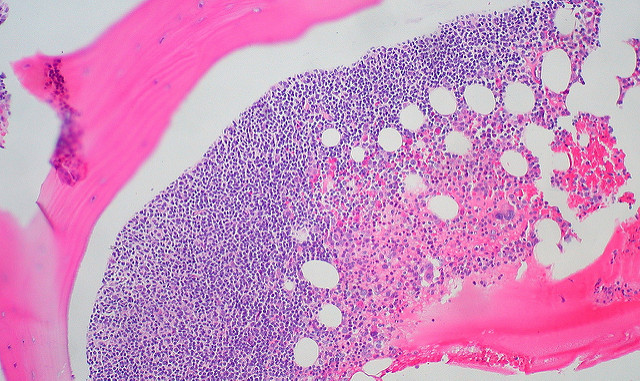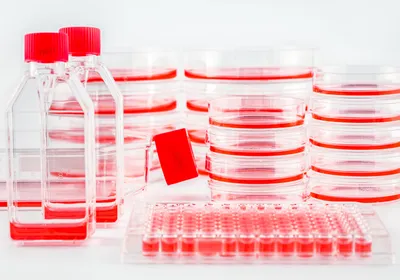 Follicular lymphoma in bone marrowFLICKR, ED UTHMANSix months after receiving infusions of their own T cells—genetically engineered ex vivo to carry chimeric antigen receptors (CAR) that bind to proteins on the surface of tumor cells—more than one-third of patients with aggressive lymphomas are seemingly disease free, Kite Pharma announced yesterday (February 28).
Follicular lymphoma in bone marrowFLICKR, ED UTHMANSix months after receiving infusions of their own T cells—genetically engineered ex vivo to carry chimeric antigen receptors (CAR) that bind to proteins on the surface of tumor cells—more than one-third of patients with aggressive lymphomas are seemingly disease free, Kite Pharma announced yesterday (February 28).
The results of this six-month follow up in the Phase 2 trial “showed only a slight degradation in response rates and no new safety concerns compared to results previously seen at three months,” according to the statement released by the company. “Kite intends to submit a marketing application for [the treatment called] KTE-C19 to the US Food and Drug Administration by the end of March.”
Last year, both Juno Therapeutics and Kite Pharma announced that a small number of patients had died in their respective CAR T-cell therapy trials. Juno’s trial was halted, but Kite’s carried on. The Kite study enrolled 77 patients with advanced diffuse large B-cell lymphoma (DLBCL) and 24 patients with two other forms of aggressive lymphomas. Combined, 36 percent of those ...


















